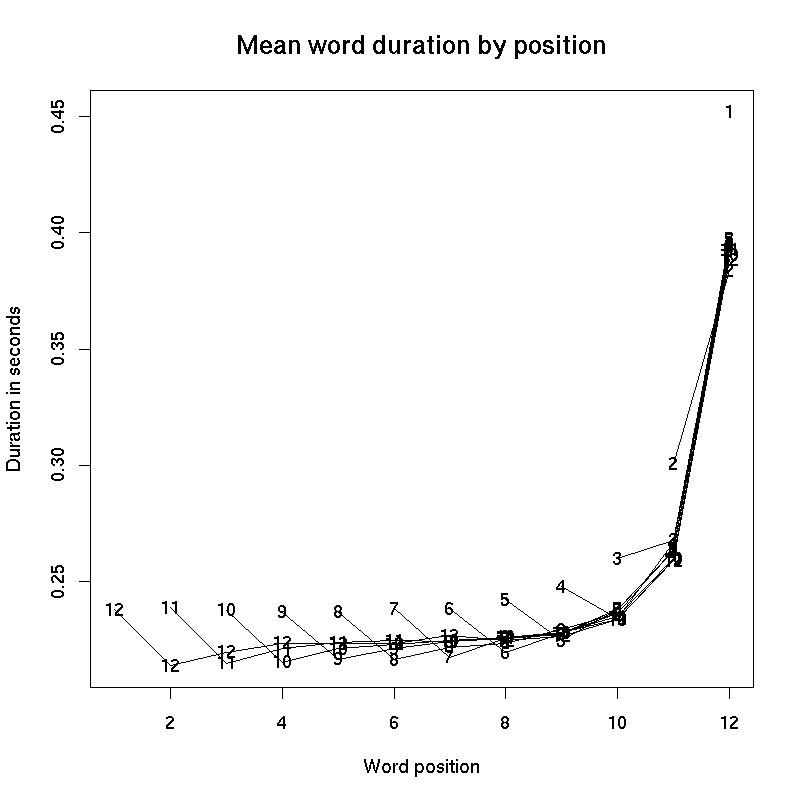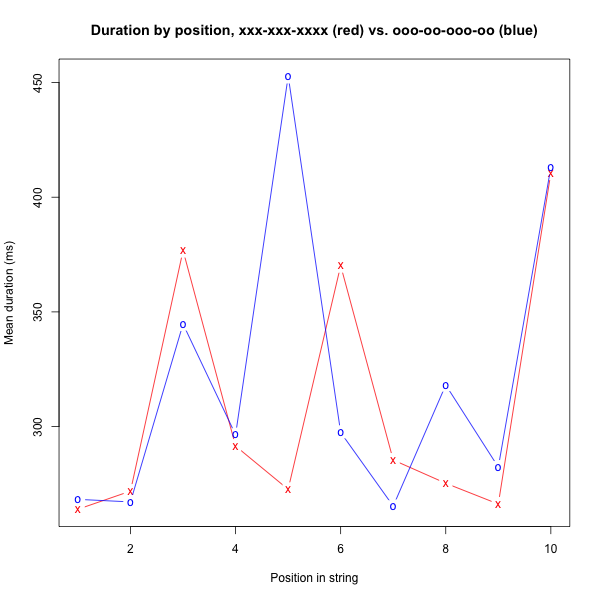This year's Penn Reading Project book is Adam Bradley's Book of Rhymes: The Poetics of Hip Hop. In my discussion group yesterday afternoon, several participants complained that some important things about the "poetics" of rap are lost in a purely textual presentation of the lyrics. One student observed that in pieces he knows, the rhythm is there in the written form — but the lyrics for pieces that he doesn't know seem flat and lifeless in comparison.
There are good reasons that this is more true for the works of Melle Mel or Jay Z than for Elizabeth Barrett Browning or W.H. Auden, I think.
One of the advantages of the weblog format is the combination of text, images, and audio or video clips, so for this morning's Breakfast Experiment™ I decided to present a small exploration of the "poetics of hip hop" in a multimedia — and somewhat quantitative — framework.
This exercise will clarify why transcriptions of the lyrics, even with bold-face indications of stress, are missing an important dimension. The lines' scansion depends not only on the syllable sequence and on where the performer puts phrasal stresses, but also on the alignment of the syllables with the musical meter. This alignment is not automatic or always obvious — it has artistically-relevant degrees of freedom beyond those available in most other genres of text setting.
For those whose appraisal of Bradley's book was (interpreting freely) "not enough vampires and car chases", this will probably make things worse — you have been warned.
Read the rest of this entry »

